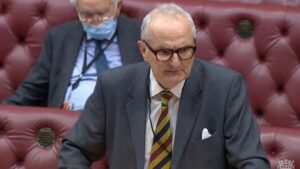It has taken a while but we now have a much clearer picture of what enforcement action and prosecutions for Bounce Back Loan fraud looks like.
The latest figures quoted by the National Audit Office suggest that between £3.2 and £6.3 billion of the total cost of the Government’s £96.9 billion emergency Covid-19 support, was claimed in error or fraud.
In November 2020, the National Audit Office was critical that no credit checks were used in the Bounce Back Loan Scheme – as a consequence unviable businesses were given access to the loans. It was predicted at the time that as much as £26 billion could be lost to fraud.
The Bounce Back Loan Scheme was brought in too quickly for a fraud prevention strategy to be implemented, giving a window where fraudulent claims would go unmonitored.
Banks were expected to use their own enforcement powers to monitor applications and close down those businesses they suspected of fraud. It was only in September 2020 that banks started to get to grips with the backlog. We know that 150,000 ineligible claims were blocked.
Lord Agnew, (Pictured above) The government’s former counter-fraud minister, has said that many banks did not run thorough checks on borrowers before handing out loans through the scheme, claiming that Starling Bank was “one of the worst”. Starling has robustly denied the allegation.
Jeremy Asher, Consultant Regulatory Lawyer, Setfords explains how these fraudulent cases being chased, and what is happening to the perpetrators?
A suite of different enforcement action is now taking place:
Firstly, the banks identify suspicious applications and use traditional anti-fraud measures such as Cifas markers after issuing default notices, closing down and freezing accounts – these markers block access to credit and banking facilities for 6 years. Challenging such decisions is a difficult, technical and specialist area of law. Where default notices are issued repayment plans are negotiated with the banks.
The Insolvency Service takes the cases where it is apparent that businesses have been wound up. Companies House is now refusing to allow applications by companies wishing to be struck off the register which had previously applied successfully for Bounce Back Loans.
The National Investigation Service is now actively investigating cases notified to it by BEIS where fraudulent applications have been flagged, and is working with the CPS to bring criminal prosecutions.
In the most serious cases, the Proceeds of Crime Act will be used to make Confiscation Orders for the recovery of the funds following successful criminal prosecutions.
Read more:
Fraudulent Bounce Back loan application prosecutions – what the landscape looks like


























